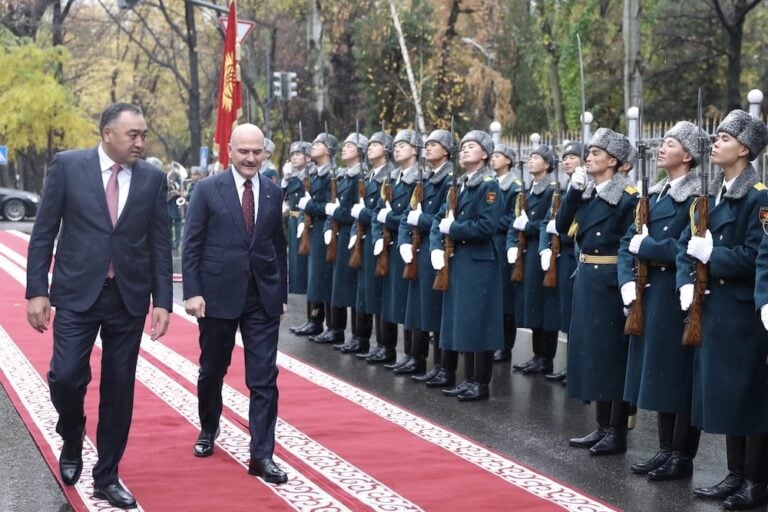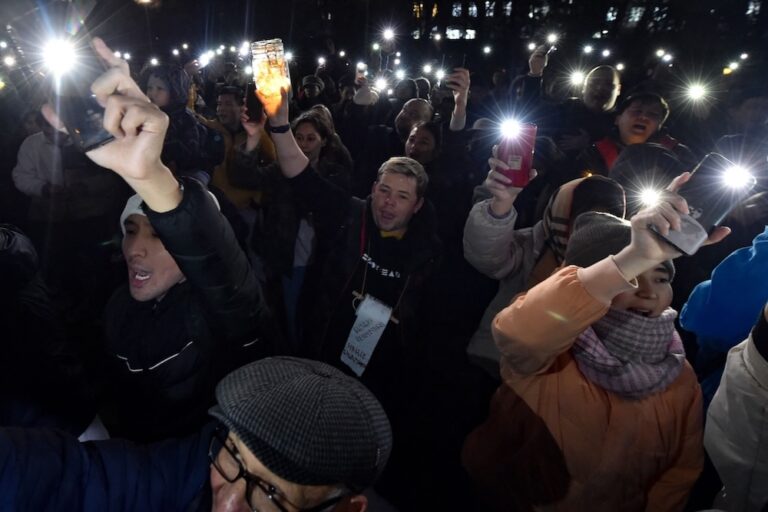(RSF/IFEX) – In the run-up to the 27 February 2005 legislative elections, President Askar Akayev is using his control of Kyrgyzstan’s news media to smear or neutralise the opposition and avoid the political upheaval that has been seen in recent months following elections in Georgia and Ukraine, RSF said. The organisation called on President Akayev […]
(RSF/IFEX) – In the run-up to the 27 February 2005 legislative elections, President Askar Akayev is using his control of Kyrgyzstan’s news media to smear or neutralise the opposition and avoid the political upheaval that has been seen in recent months following elections in Georgia and Ukraine, RSF said. The organisation called on President Akayev to respect the principle of media pluralism as an essential guarantor of democratic elections.
“We alert the members of the Organization for Security and Cooperation in Europe (OSCE) observation mission currently in Kyrgyzstan to the danger of the media being manipulated by the authorities during this crucial election period,” RSF said.
The website of the student opposition movement Kel-Kel (http://www.kelkel.kg) has been blocked by the Asiainfo Internet service provider. The name of the organisation has been appropriated by a copy group that is claiming the rights to the “kelkel.kg” domain name. The name was reportedly registered in record time with the Justice Ministry – in one day instead of the month usually needed.
In a separate incident, on 8 January, messages designed to discredit several opposition political figures were sent from e-mail addresses belonging to the opposition websites http://www.gazeta.kg and http://www.centrasia.ru without the knowledge of those in charge (see IFEX alert of 2 February 2005).
Another pillar of Akayev’s media strategy is strict censorship and control of access to the media. Only the 25 closest allies of the president and his family had access to the media up until 2 February, the deadline for electoral candidates’ registration.
All media, both pro-government and independent, have been given detailed instructions on how the legislative elections are to be covered. In particular, they have been told to concentrate on covering the ruling party candidates.
Most of the media are now controlled by individuals close to the president, a situation that has allowed him to speak aggressively about “foreign contamination that would threaten the traditions of the Kyrgyz people.” The leading television station KTR is controlled by the government, while Akayev’s son-in-law owns Koort TV and Love Radio. The independent television station Piramida-TV has been taken over by the Areopag group, which is closely linked to the ruling party.
Finally, the weekly “MSN”, one of the country’s leading independent newspapers, is once again the subject of authorities’ harassment. A libel action has been brought against the paper by the daily “Vetchernii Bishkek”, which is demanding 120,000 euros (approx. US$156,300) in damages over a report alleging “Vetchernii Bishkek” was financially controlled by Akayev’s son-in-law, Adil Toigonbaev. A ruling is due on 16 March.


